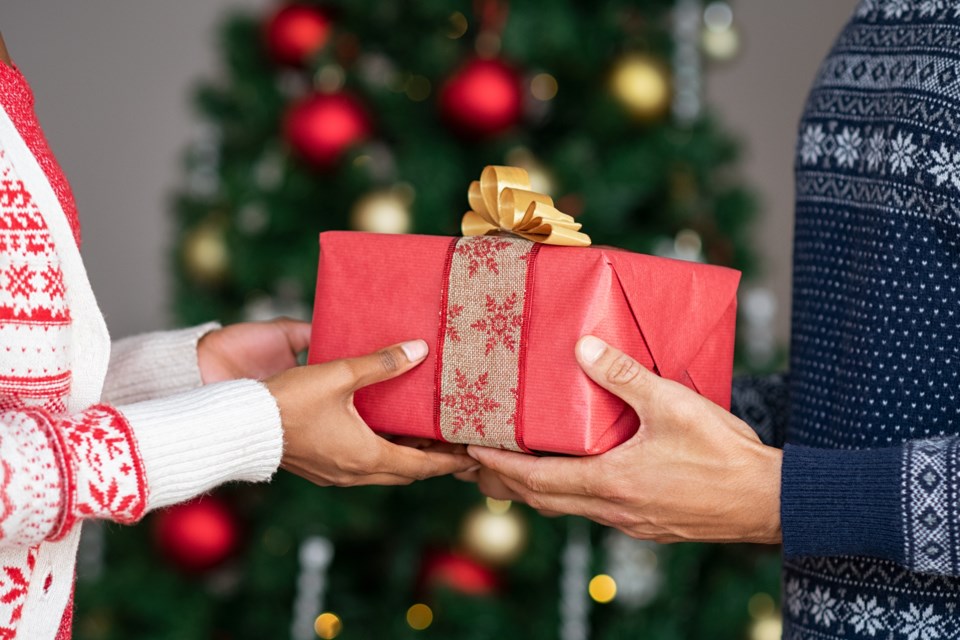Until my mother-in-law passed away last year, one of our family traditions was to have an advent dinner on the four Sundays leading up to Christmas.
She would lead the readings and the lighting of the advent candles each week dedicated to a particular theme: hope, love, peace and joy.
Finally, she would coax the unwilling group to sing a Christmas carol.
It sounded bad. Really bad. Like karaoke without music loud enough to cover up the chorus of out of tune voices singing in different keys. Before we could finish, many of us would break down in laughter.
One year, my niece brought a boyfriend to an advent dinner but begged for no singing. We sang anyway. They broke up, and she went on to marry a man who accepted that tone deafness can be hereditary.
The holidays can be a stressful and unhappy time of the year for many other reasons. We can get caught up in big expectations, the busyness and cost of shopping, and even family conflicts.
To prepare for the season, we would all do well to reconnect to a healthier perspective of who we are in relation to one another.
It is no coincidence that the four brahma viharas (or four divine abodes) of mindfulness practice for cultivating positive qualities of mind and heart are love, compassion, peace and joy.
You will discover the same themes in all the great religions — which all agree on a deeper, esoteric level. It’s on the details of dogma that they differ.
In the centre of Michelangelo's masterpiece on the ceiling of the Sistine Chapel is the image of God reaching out to touch the hand of Adam. Adam looks as unenthusiastic as our family advent singers while God seems to be making the bigger effort.
Unless you've studied neuroanatomy, you may not recognize that the image of God is riding on the outline of the corpus collosum — the structure that connects the two hemispheres of the human brain.
We recognize that there are two ways of thinking about ourselves and the world, each associated with the functions of the two cerebral hemispheres.
The left hemisphere is associated with conceptual dualistic thinking. This is how we make sense of the world.
We label and categorize everything. We make judgments. We set goals and get frustrated when we don't achieve them. We create mental models or stories about the world, ourselves and our relationship with others, but our stories are just approximations of reality and they can limit our perception of others.
Our thoughts can foster anxiety, sadness, anger and resentment. This conceptual dualistic way of thinking creates the illusory concept of your separate smaller self.
This conceptual way of thinking about ourselves and the world is where we function most of the day — at work, in school and at home. It can be the source of much of our misery at this time of the year.
The right hemisphere has been associated with a holistic, connected and mindful way of living in and seeing our world. It fosters the perspectives or mindsets of equanimity (peace and acceptance), compassion, unconditional love and joy.
Both ways of thinking — the conceptual and the holistic — have been essential for human survival.
The conceptual way of thinking helps us to detect danger, protect ourselves and plan for the future — but can make us miserable. The holistic, connected way of thinking encourages cooperation and human connection — and fosters greater happiness.
During this season, when you are feeling stressed, isolated or disappointed, let these feelings be a prompt to reconnect with the four healthy mindsets:
Peace or equanimity
- Accept all that is rather than hoping that reality can be any different than it is. Be grateful for what you have today — the measure of health that you have at this moment and the people in your life today.
Unconditional love
- Everyone wants to be happy and everyone truly believes that they are right. We all live according to our own conscious and unconscious life stories. None of us is perfect but everyone deserves and needs to feel loved.
Compassion
- Suffering is a part of every life, but there is always someone else who is in need of your help and compassion. What can you do today to make someone else's day? Remember to practice self-compassion. The judging left brain can be very hard on ourselves.
Joy
- The only time that you can be fully alive and happy is in the present moment. Enjoy what you can experience with the people in your life this day and recognize that our expanded connected selves can lift us up from the limitations of our smaller self-told stories.
Wishing all of my readers, peace, love and joy this season and always.
On Thursday, Dec. 7, 2023, I’ll be giving a free online talk from 7 to 8:30 p.m.
The topic: "The positive potential of your relationships."
I'll discuss how healthy relationship and social connections are essential to your happiness and wellbeing; the qualities of healthy relationships; recognizing and managing challenges, and how we can foster a sense of belonging and connectedness in our community.
It's part of the Burnaby Division of Family Practice's Empowering Patients health education program.
To register, email Leona at [email protected] or call 604-259-4450.



